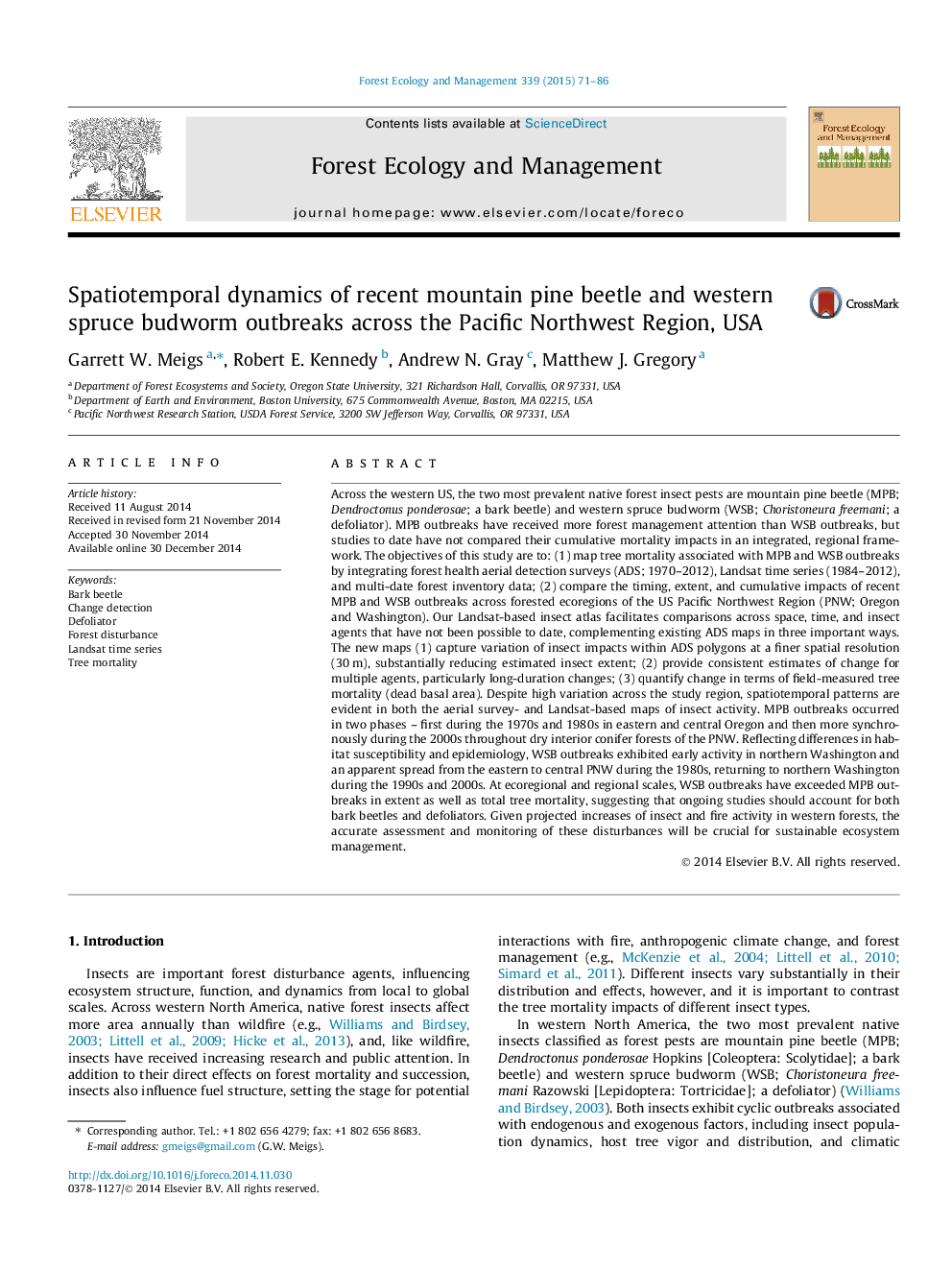| Article ID | Journal | Published Year | Pages | File Type |
|---|---|---|---|---|
| 86402 | Forest Ecology and Management | 2015 | 16 Pages |
•We integrate aerial, Landsat, and field data to create an atlas of insect-caused tree mortality.•Native forest insects have had widespread and locally intense cumulative impacts.•Western spruce budworm has exceeded mountain pine beetle in both extent and total tree mortality.•Regional hotspots of insect activity may warrant ecosystem management and restoration.
Across the western US, the two most prevalent native forest insect pests are mountain pine beetle (MPB; Dendroctonus ponderosae; a bark beetle) and western spruce budworm (WSB; Choristoneura freemani; a defoliator). MPB outbreaks have received more forest management attention than WSB outbreaks, but studies to date have not compared their cumulative mortality impacts in an integrated, regional framework. The objectives of this study are to: (1) map tree mortality associated with MPB and WSB outbreaks by integrating forest health aerial detection surveys (ADS; 1970–2012), Landsat time series (1984–2012), and multi-date forest inventory data; (2) compare the timing, extent, and cumulative impacts of recent MPB and WSB outbreaks across forested ecoregions of the US Pacific Northwest Region (PNW; Oregon and Washington). Our Landsat-based insect atlas facilitates comparisons across space, time, and insect agents that have not been possible to date, complementing existing ADS maps in three important ways. The new maps (1) capture variation of insect impacts within ADS polygons at a finer spatial resolution (30 m), substantially reducing estimated insect extent; (2) provide consistent estimates of change for multiple agents, particularly long-duration changes; (3) quantify change in terms of field-measured tree mortality (dead basal area). Despite high variation across the study region, spatiotemporal patterns are evident in both the aerial survey- and Landsat-based maps of insect activity. MPB outbreaks occurred in two phases – first during the 1970s and 1980s in eastern and central Oregon and then more synchronously during the 2000s throughout dry interior conifer forests of the PNW. Reflecting differences in habitat susceptibility and epidemiology, WSB outbreaks exhibited early activity in northern Washington and an apparent spread from the eastern to central PNW during the 1980s, returning to northern Washington during the 1990s and 2000s. At ecoregional and regional scales, WSB outbreaks have exceeded MPB outbreaks in extent as well as total tree mortality, suggesting that ongoing studies should account for both bark beetles and defoliators. Given projected increases of insect and fire activity in western forests, the accurate assessment and monitoring of these disturbances will be crucial for sustainable ecosystem management.
